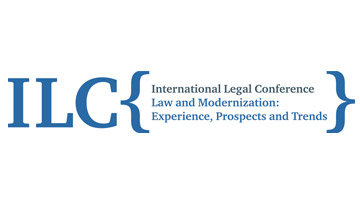At the International Legal Conference Law and Modernization: Experience, Prospects, Trends organized by the Russian Legal Information Agency (RAPSI/rapsinews.com) and RIA Novosti, participants discussed Russia’s WTO entry, issues with the Bar and reduced interest of legal firms in employing young specialists.
Partner and his team
Dmitry Prokofiev, head of Norton Caine, a company that provides recruitment services in the legal sector, said that legal firms hire young specialists on a much smaller scale than they did before the crisis. Moreover, the number of vacancies for mid-level lawyers has also decreased considerably.
Prokofiev also talked about a new trend in the legal services market: in comparison to 2008 and 2009, last year saw a record number of cases when partners transferred from one company to another – 20 all in all. He said this trend has continued in 2011. So far, 26 partners have changed companies.
The expert noted that this trend is moving the legal market forward because as a rule a partner leaves a company together with his or her team.
Prokoviev said the 2008 crisis has been overcome and such negative phenomena as “pay cuts and freezes, mass redundancies in legal firms and restricted employment opportunities have become a thing of the past.”
Who is afraid of WTO?
During the discussion lawyers unanimously supported Matvey Levant, managing partner of the Levant&Partners law firm, who said that “nobody had given any thought to Russian lawyers in the context of Russia’s WTO entry.”
“Medium Russian firms – the so-called law boutiques – are currently struggling. The advent of big production business to Russia will be followed by the arrival of large foreign law firms with their own staff,” Levant warned. He thinks “the Russian legal market is not ready for this.”
Yury Pilipenko, vice president of the Federal Bar of the Russian Federation and managing partner of the Yust law firm, suggested “accepting Russia’s accession to the WTO and becoming involved in the defense of our lawyers by concerted effort.” He also emphasized the need to streamline legal services and bring them to a civilized level.
Pilipenko believes “the Russian market of legal services has been narrowing down recently. There have been signs of growing monopoly attitudes and the M&A vogue is merely confirming these trends.”
The Bar or self-regulated organizations?
Yuly Tai, managing partner of the Bartolius law firm, urged expanding the Bar “by inviting new members to join it without having to take exams in order to avoid any corruption traps.”
He recalled that in the past 10 years, about 5,000 attorneys out of the 65,000 registered members of the Bar have been stripped of their status.
Yevgeny Shestakov, managing partner of the INTELLECT-S Law Firm Group, believes that self-regulating organizations of law firms may become an alternative to the Bar as “a more flexible option.”
“The majority of private attorneys are not interested in joining the Bar. They don’t even care about attorney immunity,’” he said.
Moscow vs. regions
During the discussion, Managing Partner of the Yug Law Office Yury Pustovit noted considerable differences between Moscow and regional legal markets.
“Small law firms find it difficult to work in the regions. It is hard for them to compete with rival companies with a big staff and a recognizable brand. For the time being there are no consumer standards in the market of legal services. Moreover, in the regions this market is closed,” he said.
Pavel Kurlat, partner of the First Legal Network law firm, expressed the opposite view. He said that the work becomes more effective when regional companies are involved because “local people know more about their opponents and have a better understanding of how to uphold their clients’ interests.” Kurlat added that sometimes federal clients are biased against the involvement of local consultants.
Olga Romanova, managing partner of the Ratum law firm, pointed to a different problem. Sometimes, a company receives a job that beyond its scope of expertise. It is ready to hand it over to another firm but cannot do so because the market is closed.

Russian law firms change partners and worry about WTO
story: Russia's WTO entry problems


